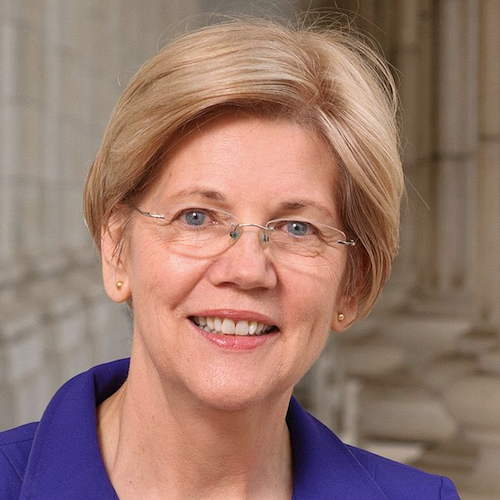

Sen. Elizabeth Warren (D-MA),
a candidate for the Democratic
nomination for president,
said of her “excessive lobbing tax” proposal.
Sen. Elizabeth Warren (D-MA), a candidate for the Democratic nomination in the 2020 election for president, on Wednesday proposed an “excessive lobbying tax” that if put into effect could be costly to some companies and groups representing senior living providers.
“Under my plan, we will end lobbying as we know it. We will make sure everyone who is paid to influence government is required to register as a lobbyist, and we’ll impose strict disclosure requirements so that lobbyists have to publicly report which agency rules they are seeking to influence and what information they provide to those agencies,” Warren wrote on her campaign website.
The proposal, she said, would apply to corporations and trade organizations that spend more than $500,000 annually to lobby the government. “This tax will reduce the incentive for excessive lobbying, and raise money that we can use to fight back against this kind of onslaught when it occurs,” Warren wrote.
Specifically, she said, companies and associations that spend between $500,000 and $1 million per year on lobbying, calculated on a quarterly basis, would pay a 35% tax on their related expenditures. The rate would increase to 60% for every dollar over $1 million and 75% for every dollar over $5 million.
“Every dollar raised by the lobbying tax will be placed into a new Lobbying Defense Trust Fund dedicated to directing a surge of resources to Congress and federal agencies to fight back against the effort to bury public interest actions by the government,” Warren said. A new Office of the Public Advocate would be established with some of the funds, to “help the American people engage with federal agencies and fight for the public interest in the rule-making process,” she added.
Warren’s website doesn’t specify the tax code designations to which her lobbying tax proposal would apply. According to Vox, however, the proposal would affect trade and professional associations with tax code designations as 501(c)6 organizations, such as the American Health Care Association / National Center for Assisted Living and Argentum, as well as corporations. Organizations with 501(c)3 tax code designations, such as LeadingAge, are considered charitable or social welfare organizations and would not be affected, according to the media outlet. Some provider organization state partners or affiliates are 501(c)6 organizations, however, and would be affected.
According to some legal experts, efforts to tax lobbying likely would face legal challenges under the First Amendment.

